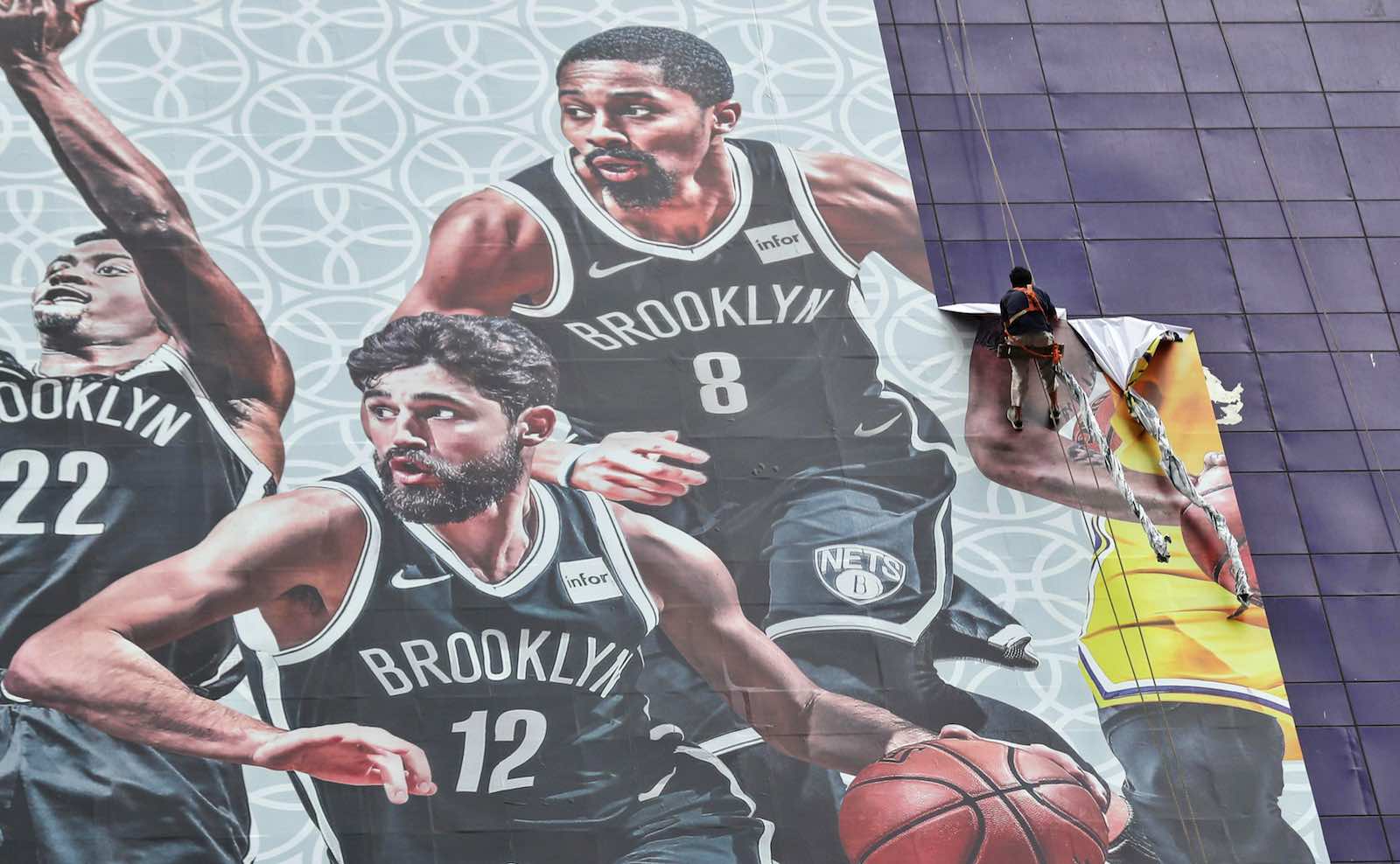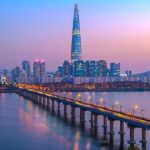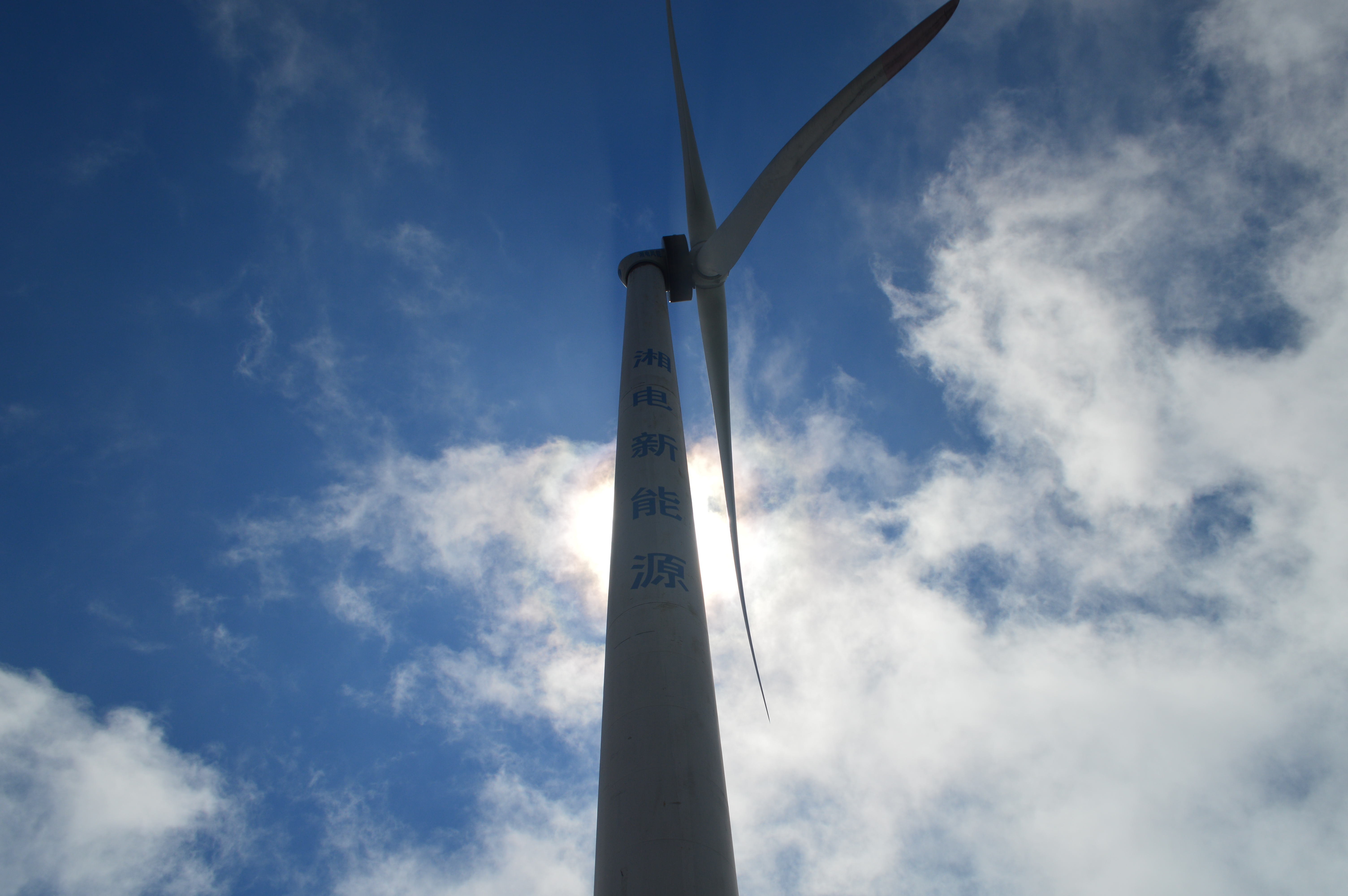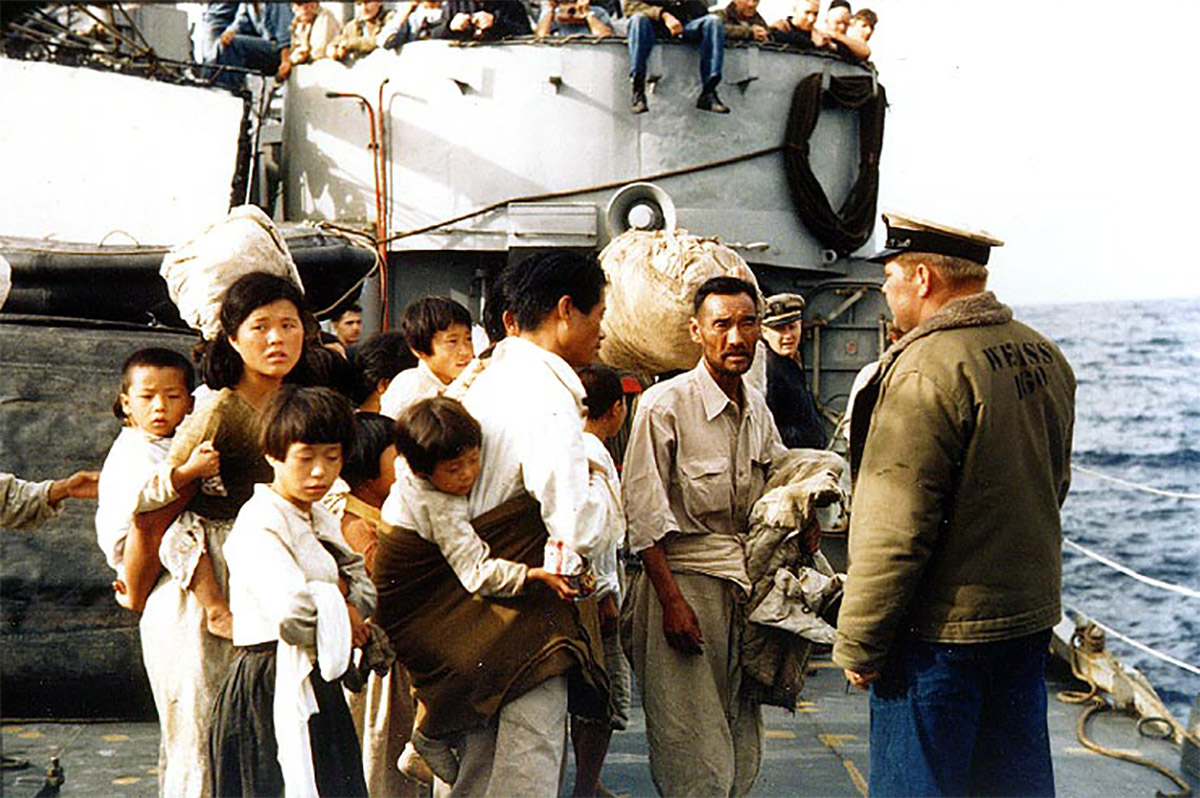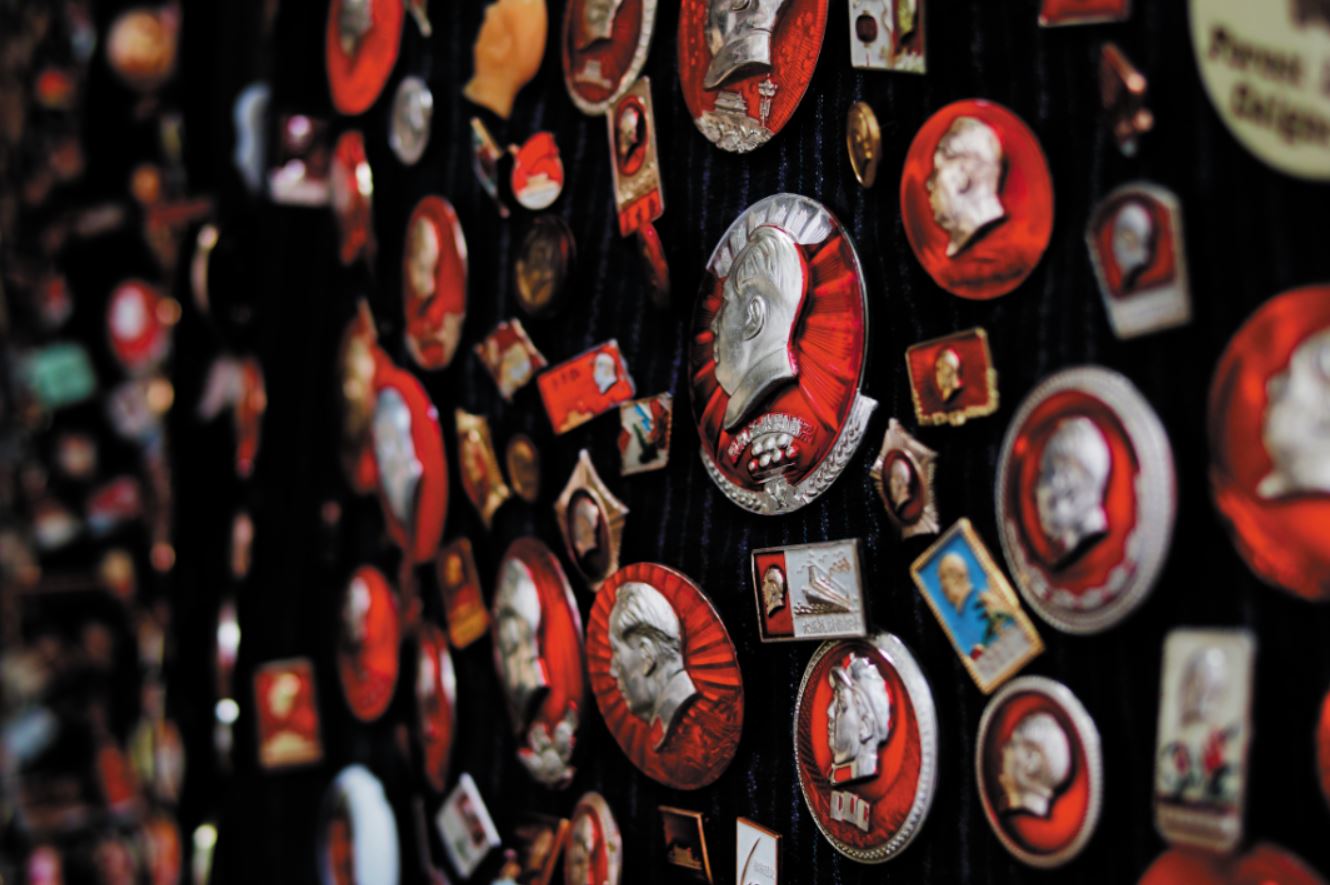It has been a rocky couple of weeks for American multinational businesses that operate in China. Differences in opinions in American and Chinese markets, and especially the increasingly tense situation in Hong Kong is pushing American companies towards an uncomfortable decision: they must pick sides. Only in 2019, Hollywood, Apple, airlines, luxury brands, and even shoemakers have been forced to apologize for political missteps, like recognizing Taiwan as a country, or supporting protestors in Hong Kong. Companies are wont to do so because if they spark Chinese outrage, they may lose access to the enormous Chinese domestic market. Some companies even preempt such backlash by exercising self-censorship. But China’s petulance may be working against it this time. Recent outrage against gaming-company Blizzard and the American basket league NBA should give Beijing pause about if it wants to continue down this road.
The NBA
The National Basketball Association (NBA) was the first major organization to wade into the mire that is Hong Kong in 2019. It started when the Houston Rockets general manager Daryl Morey tweeted out an image supporting the protests in Hong Kong that said “Fight for Freedom. Stand with Hong Kong.” The tweet has since been deleted and Morey, the Rockets, and the NBA have all made various statements distancing themselves, or in Morey’s case apologizing for offending China.
But the damage was already done. Chinese organizations and companies canceled deals, removed merchandise, and quickly cut all ties with the Houston Rockets. The Chinese Basketball Association, led by Chinese basketball superstar Yao Ming who was once a member of the Rockets, also said that they will suspend their relationship with the team. Other Chinese companies such as Tencent, Vivo and CCTV are all suspending their relationships with the NBA over this single tweet. Searching for Houston Rockets merchandise on Alibaba now returns empty results. Needless to say, China is throwing around its economic power to get foreign companies and people to toe to the Communist party line. To a certain extent it works, but not flawlessly.
NBA scrambled to amend its reputation in one of its biggest overseas markets, releasing a statement that called Morey’s tweet regrettable. In the past this might have been the end of the story, the relationship between the NBA and its Chinese partners might have taken a hit for a little while and then slowly things would resume back to normal. But those times seem to have passed. Following NBA’s appeasement of China, intense backlash emerged in the United States. Republican and Democrat senators made common cause, issuing statements that condemned what they viewed as the NBA capitulating to China. President Trump went even further and called out the NBA officials and players for “Pandering to China.” NBA is caught between the rim and the backboard; it may have to end up choosing a side or risk losing both.
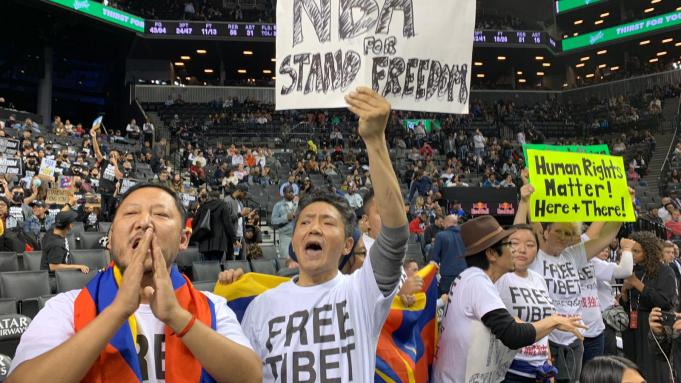
Activists protest China’s occupation of Tibet during an NBA game (Photo: Blair Fitzgibbon).
Blizzard
Video game publishing giant Blizzard Entertainment also found itself in a Chinese controversy after banning a professional player of the game Overwatch for expressing his support for the pro-democracy protests in Hong Kong in an interview. The Hong Kong-native player, known as Blitzchung, received a one-year ban from Blizzard, who also withdrew his prize-money. The company also fired the two Taiwanese hosts who conducted the interview.
Blizzard’s actions caused huge backlash within the Blizzard community. Players of other Blizzard games, such as Starcraft, World of Warcraft, and Hearthstone canceled subscriptions and lambasted the company on online forums. Blizzard hamfistedly carried out mass-censorship of the topic across all discussion platforms under its control, and allegedly stopped people from deleting their accounts. (Others have claimed that this was merely a technical issue due to so many people deleting at once. Either way not a good look for the company.)
To say that Blizzard bungled the case is an understatement. Just like the NBA, criticism from influential American politicians was swift. Senator Marco Rubio and Congresswoman Alexandra Ocasio-Cortez, two members of Congress who rarely agree on much, both signed a letter calling for Blizzard to reverse its decision. Blizzard eventually backtracked, and reduced Blitzchung’s ban from one year to six months, and also returned his prize money. But many feel it is too little, too late. Petitions have called for Blizzard to reverse its “pro-China” actions. Others protested at Blizzcon, Blizzard’s annual promotional convention.
The whole episode took place only a few days after an episode of the popular animated show South Park parodied a situation very similar to the NBA and Blizzard cases. Without these three events coinciding within just three days, the problematic implications for American businesses may have gone unnoticed.
Can China Continue this Course of Action?
All companies take on a certain amount of risk, however, there is a limit to just how much risk a business is willing to deal with. China is showing the business world that the risk of doing business in China is that you can suddenly find yourself on the wrong side of the people and the government without means to change the situation. That risk, coupled with the explosive outpouring of anger in the American public over what they perceive to be “kowtowing” to China, may push companies away from starting operations or investing further in China. That may be part of the reason why China has lately tempered its outrage in government-controlled media. According to the New York Times, the Chinese Communist Party is concerned that excessive outrage could have a negative effect on the US-China trade war and the 2022 Beijing Winter Olympics.
China, despite all its economic success, still needs outside investment. Its massive and growing middle class has come to expect a certain lifestyle which includes many Western brands and goods. It is important to remember that China needs these companies as much as these companies need China. Chinese people are big fans of the NBA and Chinese businesses also make big money from their partnerships with the NBA. Throwing that money away may be more than some are willing to do.
In forcing foreign companies to pick a side, China may have overplayed its hand. China seems to have initiated the Streisand Effect, where an attempt to hide or censor something ends up bringing more attention to the subject. China certainly does not want more people interested in Hong Kong, or other sensitive issues like Tibet or the incarceration of Uighur Muslims in Xinjiang. So while it is becoming more and more difficult for American companies to stay silent and remain neutral, they could soon be getting a reprieve from China as it re-evaluates its economic bullying tactics. As it should because these tactics are not in China’s long term interests.
Taylor Dame is from Rhode Island on the east coast of the United States. He studied political science and public administration in his undergraduate program and currently studies international peace and security at Korea University Graduate School of International Studies.
- “I Love My Body”: Hwasa and Female Empowerment in K-Pop and Korean Society - May 6, 2025
- English Fever in South Korea - February 24, 2025
- South Korea’s Medical School Expansion – Cure Worse than the Disease? - October 20, 2024

